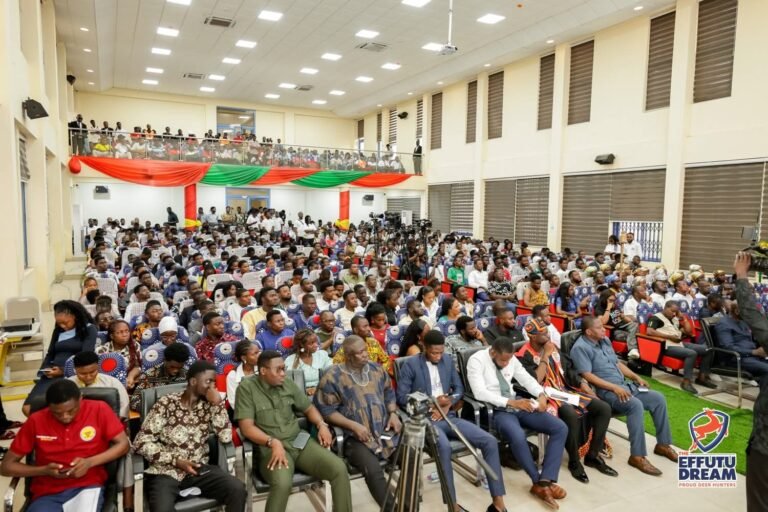
Dr Stephen Amoah
A member of the Finance Committee of Parliament, Dr Stephen Amoah, has called on stakeholders in the financial and economic sectors of the country to change the import-driven structure of the economy, deeply rooted for multiple of decades.
He said the change must be effected by all stakeholders since there is no short-term sustainable solution.
Dr Amoah made the call during the Financial Economic Seminar held at the Accra International Conference Centre, dubbed “Identifying and Redefining the Economic Fundamentals of Developing Economies: Anomalies and Challenges- The Case of Ghana”
The MP for Nhyiaso explained that Ghanaian companies have particular challenges expanding to deal with the unemployment situation in the country because governments compete with them at higher rates.
“It is crystal clear that governments cannot create jobs to meet the fast-growing demand. In fact, one can argue that the domestic debt portfolio can be challenged as a result of this anomaly. These returns play critical role in the valuation process of banks, which are integral part of our GDP computation. Industries in Ghana will continue to underperform their benchmarks so far as the situation is not regularized,” Dr Amoah stated.
Issues
Dr Amoah disclosed that some stakeholders had raised issues and recommendations such as the private sector not being attractive enough; banks always having to make profits; mismanagement of fiscal issues; regulatory challenges, among others.
According to him, solutions must be proffered because whether they are all correct or not, the anomaly cannot be challenged. “How long are we going to be experiencing weak industries, producing far less than we demand, importing almost everything, depending on foreign markets?” he quizzed.
“We are experiencing extremely high cost of doing business in Ghana, characterized as a double digit interest rate economy, ritually weak currency, high unemployment rate, weak and behavioral inclinations, infrastructure deficit, poor data management and productivity issues,” he bemoaned.
With digitalisation progressing in the country, he urged all stakeholder groups and individuals to place the necessary premium on these factors to resolve this challenging fundamentals.
Investment market
Dr Amoah noted that capital investment markets play important roles in the economic growth and stability of every country in the world, including Ghana.
“The performance of any capital market in any jurisdiction has enormous impact on its primary and secondary macroeconomic parameters. The cost and availability of funds to all categories of investments, especially the private sector, are very critical to the growth of every country on the globe. Finance and investment are the “vertebra column” of any economy, just like the spinal column in all vertebrates,” he noted.
He said there is fundamental principle of risk and return in all investments and that is “the higher the risk, the higher expected return”.
“All investments portfolios are classified as either risky or risk free. For instance, governments’ securities are generally classified risk free, while private sector ones such as fixed deposits, are deemed risky.
“Government securities in any well-developed economy and efficient market do not offer higher rates than comparable ones by the private sector on the same market. Returns from risky investments are made up of risk free return on the market plus premium to compensate for investing in risky portfolio. I am yet to find out which model does not support this assertion,” he noted.




